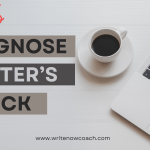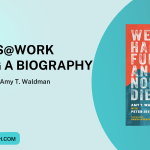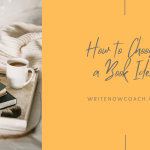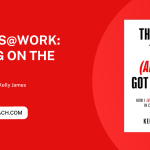How to Write a Book Hook
March 5, 2019
Note From Rochelle
Dear Writers,
Do you struggle to believe in yourself, find time to write, and overcome writer’s block? You’re in luck!
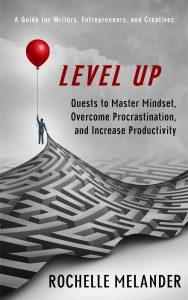 My new book can help you tackle all of those challenges and more. Level Up: Quests to Master Mindset, Overcome Procrastination, and Increase Productivity will be released in early April. But it’s available for preorder right now—and it’s just 99 cents!
My new book can help you tackle all of those challenges and more. Level Up: Quests to Master Mindset, Overcome Procrastination, and Increase Productivity will be released in early April. But it’s available for preorder right now—and it’s just 99 cents!
Today’s tip will help you write a book hook that works!
Enjoy!
Rochelle
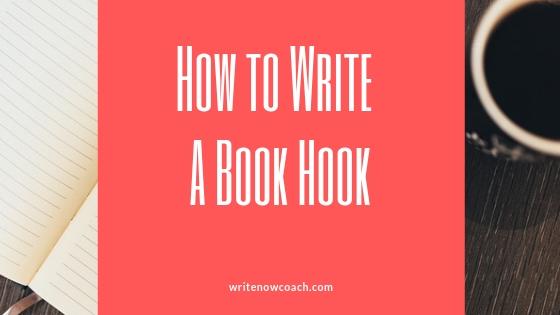
How to Write a Book Hook
By Rochelle Melander
You’re at a networking event. (Maybe you’re an introverted writer who avoids any group gathering with strangers, but work with me here.) While chatting over wine and cheese, someone who knows you’re a writer asks you, “So what are you working on now?”
My advice? Make something up. Don’t ever tell people what you’re working on until you’ve finished it. It just raises expectations and makes you crazy, especially when you dump that idea in favor of something better but your neighbor keeps asking, “Have you finished that book on snails?”
In order to gain clarity and focus, it’s helpful to prepare a book hook.
What it is
A short summary of your book that includes the genre, main character, and central conflict (fiction) or main problem and solution (nonfiction).
What it looks like
Here are three examples from the current New York Times bestseller list:
Where the Crawdad Sings by Delia Owens In a quiet town on the North Carolina coast in 1969, a young woman who survived alone in the marsh becomes a murder suspect.
Never Tell by Lisa Gardner D.D. Warren and Flora Dane investigate whether a pregnant woman shot and killed her husband.
Educated by Tara Westover The daughter of survivalists, who is kept out of school, educates herself enough to leave home for university.
Why you need it
While you are writing the book, your book hook will keep you focused. When you’re tempted to jump off onto yet another meandering tangent or subplot, you can look at the book hook and remember the central theme and purpose of your book.
After you’ve written the book, your book hook will help you sell it to editors, agents, booksellers, bloggers, and the rest of your adoring public.
How to create it
Read. The best way to learn how to write book hooks is to read them. Look at book jacket copy, reviews, and author websites until you “get” the formula.
Know the key elements. Start by jotting down the key elements for your book hook. As you do so, remember you are writing this hook with your ideal reader in mind. What will he or she need to know?
If you’re a fiction writer, the key elements of a book hook include:
*type of book
*main character
*central conflict or quest of the book
*location
*era
If you’re writing a nonfiction book, your elements are:
*central problem the book addresses or teaches readers to overcome (perhaps with some anecdotal evidence or statistics to aid you in hooking the reader)
*the ideal reader (e.g., overworked parents who need help managing tasks and children)
*the solution (you don’t have to give it all away, but let us know what you’re providing—maybe a ten-step program to help people lose weight)
Write and Revise
Write a draft of your own book hook. Rewrite it. Play with word order and verb choices. After you have a draft you like, test it out on a few trusted people, like those in your critique group. Don’t worry if you have to rewrite it hundreds of times—the work will help you sharpen your understanding of both your book and how to sell it. A great hook gets used repeatedly throughout the life of a book—so it’s well worth the time and effort to get it right.
Next step
When you’re ready to sell your book, you can use your book hook in pitches, query letters, and even on Twitter! This Thursday is #PitMad. If you’ve got a book ready to sell, stop over to the PitMad site and learn how you can pitch your book to agents and editors: #PitMad



